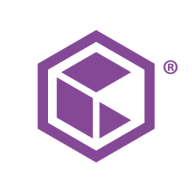

HPE Zerto Software and Cloud Rewind are competing in disaster recovery and business continuity solutions. Cloud Rewind seems to have the upper hand due to its advanced features and overall value.
Features: HPE Zerto Software is known for continuous replication, efficient failover, and real-time data protection. Cloud Rewind stands out for automation capabilities, seamless application recovery, and multi-cloud support.
Ease of Deployment and Customer Service: HPE Zerto Software integrates well with existing infrastructures and offers strong support. Cloud Rewind emphasizes automation and agility with a cloud-native deployment but sometimes struggles with responsiveness.
Pricing and ROI: HPE Zerto Software is competitively priced with a focus on reducing total cost of ownership. Cloud Rewind's setup cost is higher, but its features lead to significant long-term savings.
| Product | Market Share (%) |
|---|---|
| HPE Zerto Software | 3.2% |
| Cloud Rewind (formerly Appranix) | 0.9% |
| Other | 95.9% |
| Company Size | Count |
|---|---|
| Small Business | 92 |
| Midsize Enterprise | 86 |
| Large Enterprise | 194 |
Cloud Rewind (formerly Appranix) offers organizations reliable protection and recovery solutions, catering to complex business continuity needs. Its comprehensive features support system resilience and integrity, making it ideal for experienced IT professionals seeking robust data management capabilities.
Cloud Rewind enables streamlined data protection and disaster recovery processes. Designed to simplify backup and recovery tasks, it automates policies across multi-cloud environments, safeguarding data against disruptions. With its user-centric design, it provides businesses with the confidence to manage their cloud-based data securely, providing a seamless integration into existing IT infrastructures while maintaining efficiency.
What are the key features of Cloud Rewind?
What benefits and ROI are expected from Cloud Rewind?
Industries such as finance, healthcare, and retail use Cloud Rewind to ensure critical data is protected and easily recoverable, addressing stringent compliance demands. Its deployment in these sectors exemplifies its adaptability and relevance in safeguarding sensitive information across demanding environments.
Zerto is used for disaster recovery, business continuity, data migration, and ransomware recovery, providing continuous data protection and near real-time replication. Valued for ease of use, efficient failover processes, and versatile integration, it enhances organizational efficiency, reduces errors, and boosts productivity.
We monitor all Cloud Backup reviews to prevent fraudulent reviews and keep review quality high. We do not post reviews by company employees or direct competitors. We validate each review for authenticity via cross-reference with LinkedIn, and personal follow-up with the reviewer when necessary.